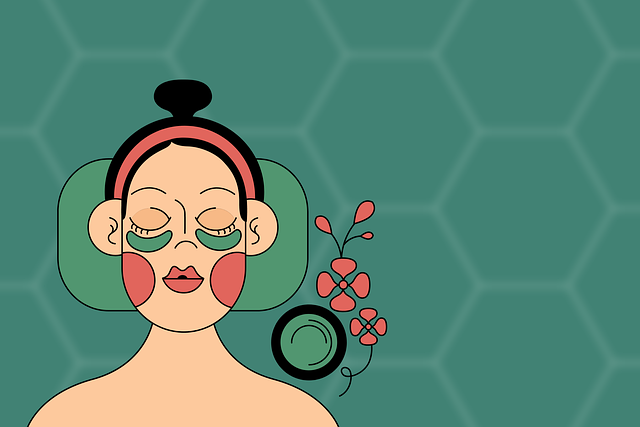Skin tags, caused by friction, age, obesity, and hormones, can be prevented through lifestyle changes like regular exfoliation, hydration, and loose-fitting fabrics. Targeted balms or oils with natural ingredients offer alternatives to medical procedures like Bristol Tag Removal, which, despite its precision, requires careful post-care to prevent recurrence. Adopting healthier habits such as exercise, balanced diet, stress management, and good hygiene is crucial for long-term solutions alongside occasional treatments.
Skin tags, those small, soft skin growths, are common but many seek effective solutions to prevent their recurring nature. This guide offers a comprehensive approach to achieving smooth, tag-free skin in Bristol. From understanding the causes and non-invasive prevention methods to exploring lifestyle changes and advanced medical treatments, we provide a detailed roadmap. Learn essential post-removal care tips and recurrence management strategies for lasting results, tailored for your convenience.
- Understanding Skin Tags and Their Causes
- Non-Invasive Prevention Methods
- Lifestyle Changes for Long-Lasting Results
- Medical Treatments and Advanced Techniques
- Post-Removal Care and Recurrence Management
Understanding Skin Tags and Their Causes
Skin tags, also known as acrochordons, are small, soft skin growths that typically appear in areas where skin rubs against itself, such as the neck, armpits, or groin. They’re usually harmless and often go unnoticed, but some folks may find them unsightly or itchy. Understanding their causes is a crucial step in preventing recurrence, especially when considering Bristol Tag Removal as an option.
While the exact cause of skin tags isn’t always clear, they often develop due to repeated friction or trauma to the skin. This can include things like tight clothing, excessive rubbing, or even skin-on-skin contact. Certain factors like age, obesity, and hormone changes can also increase the likelihood of developing these growths. Identifying and addressing these causes is a significant part of a comprehensive strategy for preventing skin tags from reappearing.
Non-Invasive Prevention Methods
Non-Invasive Prevention Methods
When it comes to preventing skin tags from recurring, there are several non-invasive methods that can be effective. One popular approach is regular exfoliation, which helps remove dead skin cells and keeps the area clean and healthy. Using mild, pH-balanced soaps and avoiding harsh chemicals can also prevent irritation that might lead to new skin tag formation.
Additionally, maintaining proper hydration through frequent moisturizing can strengthen the skin and reduce the likelihood of tags developing. Wearing loose-fitting clothing made from natural fabrics is another strategic approach, as it minimizes friction and rubbing against the skin, a common cause of tag appearance. For those seeking more targeted solutions, specialized balms or oils containing ingredients like tea tree oil or apple cider vinegar can help prevent and even treat existing skin tags gently without resorting to invasive procedures like Bristol Tag Removal.
Lifestyle Changes for Long-Lasting Results
Creating a sustainable lifestyle routine is key to effectively preventing skin tags from recurring after removal, especially considering the popularity of Bristol Tag Removal methods. Beyond occasional treatments, adopting healthier habits can offer long-lasting solutions. Regular exercise and a balanced diet are powerful allies in this regard. Physical activity boosts blood circulation, which helps flush out toxins and keeps your skin vibrant and healthy. A nutritious diet rich in vitamins and minerals supports overall well-being, including skin health.
Additionally, staying hydrated by drinking ample water can prevent dry, brittle skin, a common factor that contributes to tag development. Stress management is another crucial aspect often overlooked; chronic stress can trigger hormonal imbalances that lead to skin tags. Incorporating relaxation techniques like yoga or meditation into your routine may help curb this potential cause.
Medical Treatments and Advanced Techniques
When it comes to preventing skin tags from recurring, medical treatments and advanced techniques offer effective solutions. One popular option is the Bristol Tag Removal procedure, which involves using specialized tools to safely excise the skin tag while minimizing scarring. This method is often recommended by dermatologists for its precision and effectiveness.
In addition to surgical removal, modern techniques like cryotherapy (freezing) and laser treatments have shown promising results in preventing recurrences. Cryotherapy can freeze and destroy the skin tag, while laser treatments target the blood vessels that feed the growths. These advanced procedures are usually more expensive but offer longer-lasting solutions, reducing the need for frequent follow-up appointments.
Post-Removal Care and Recurrence Management
After successful Bristol Tag Removal, proper post-removal care is essential to prevent skin tags from returning. This includes keeping the treated area clean and dry, avoiding harsh scrubs or picks that could irritate the skin, and applying a gentle moisturizer to promote healing. It’s crucial to follow these steps diligently for several days after the procedure to ensure optimal results.
To manage recurrence, consider adopting lifestyle changes like maintaining good hygiene, keeping the skin hydrated, and steering clear of friction-causing activities or clothing that could trigger tag formation. Regular check-ups with a dermatologist can also help catch any new tags early on, making removal easier and preventing them from becoming persistent issues.
Preventing skin tags from recurring involves a multi-faceted approach. By understanding the causes, employing non-invasive prevention methods, adopting lifestyle changes, and considering medical treatments, you can significantly reduce their reoccurrence. Regularly practicing good hygiene, staying hydrated, maintaining a balanced diet, and avoiding friction or irritation are key. If you live in Bristol or consider Bristol Tag Removal, consult a dermatologist to explore advanced techniques and post-removal care tips for lasting results.
